

— Products —
 Consumer hotline +8618073152920
Consumer hotline +8618073152920 WhatsApp:+8615367865107
Address:Room 102, District D, Houhu Industrial Park, Yuelu District, Changsha City, Hunan Province, China
All products
Soil pH sensor is a device used to measure soil acidity and alkalinity. It usually consists of two electrodes: a reference electrode and a working electrode. The reference electrode is usually a silver/silver chloride electrode, which provides a stable potential as a reference point. The working electrode is usually a glass electrode which is in contact with the soil and measures the pH of the soil. When the concentration of hydrogen ions in the soil changes, a chemical react···
Tel/WhatsApp:+8615367865107
Email:Arvin@niubol.com +Nearly 100 partner companies in more than 68 countries. We are committed to providing high-quality, practical products to meet your needs and help you solve problems. Our products comply with international standards and are certified with ISO, CE and RoHS.Product Details
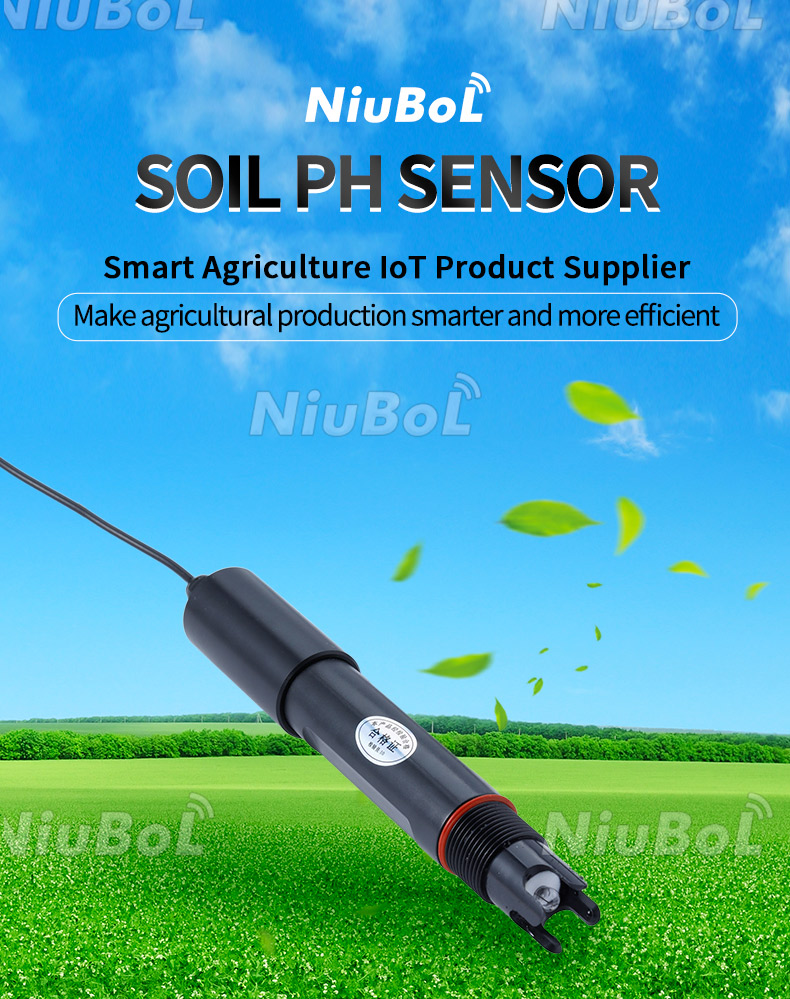
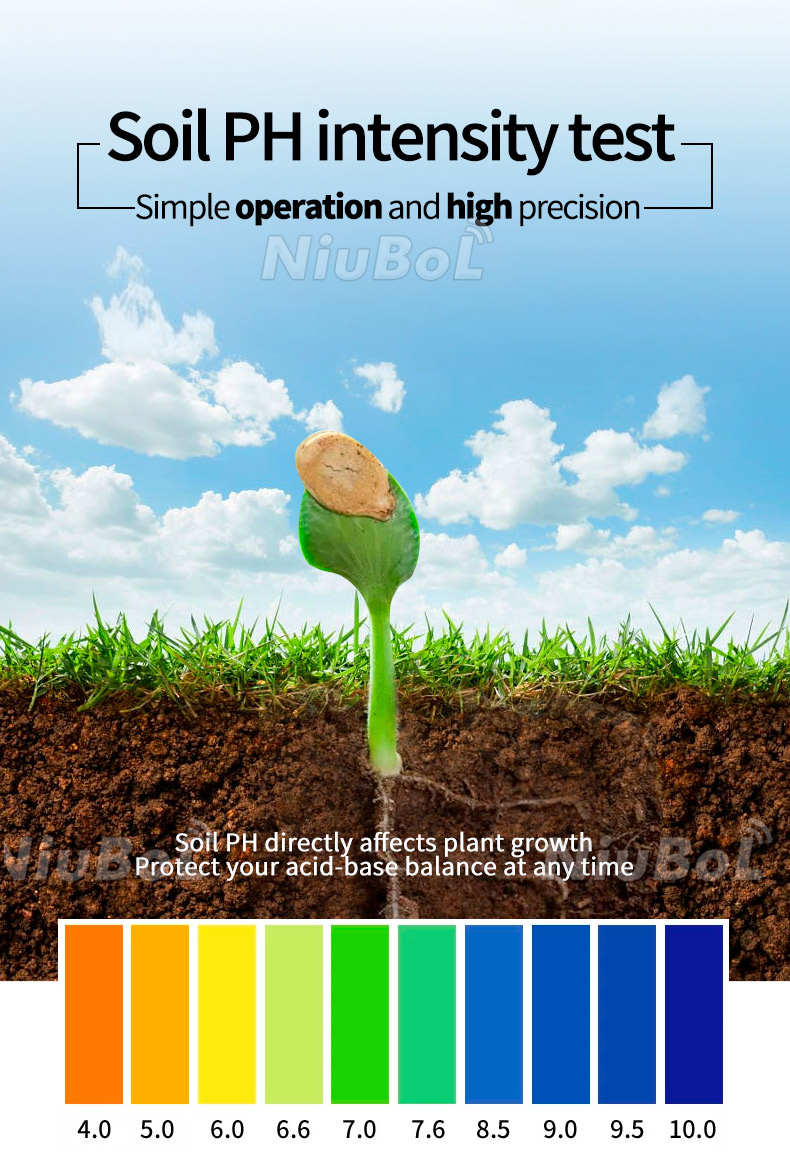
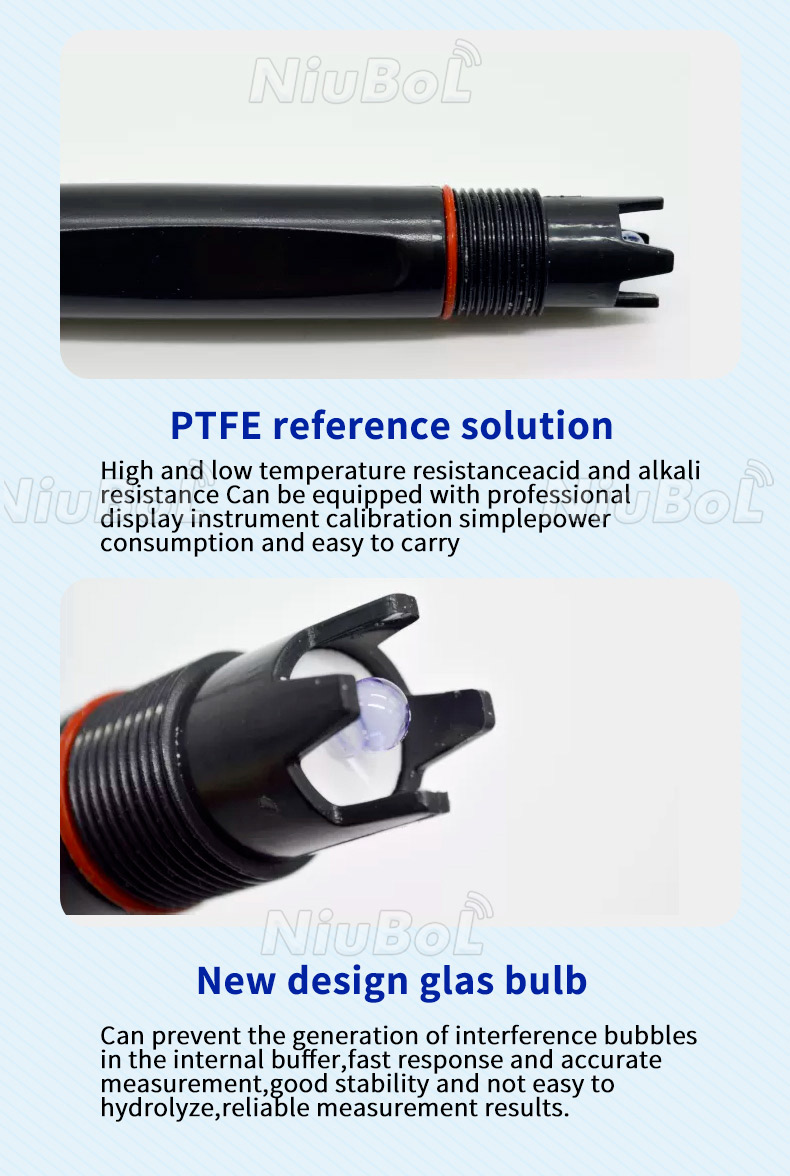
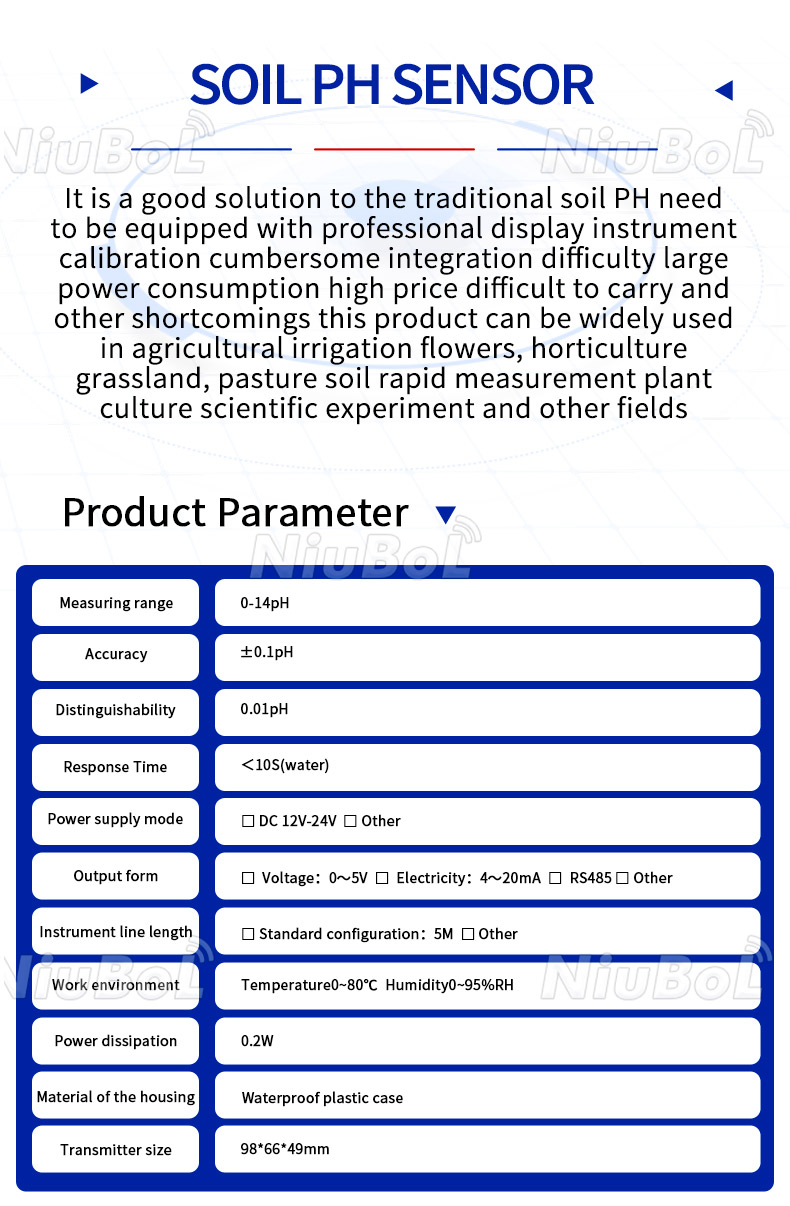
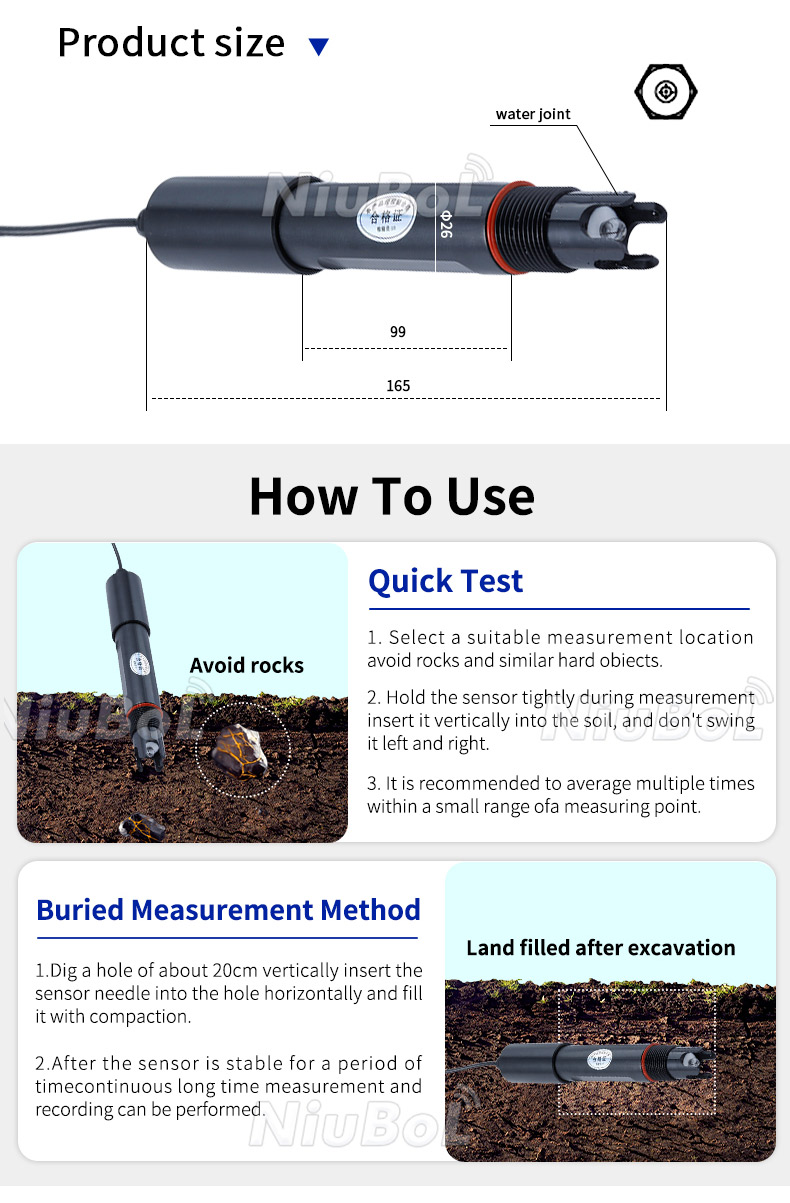
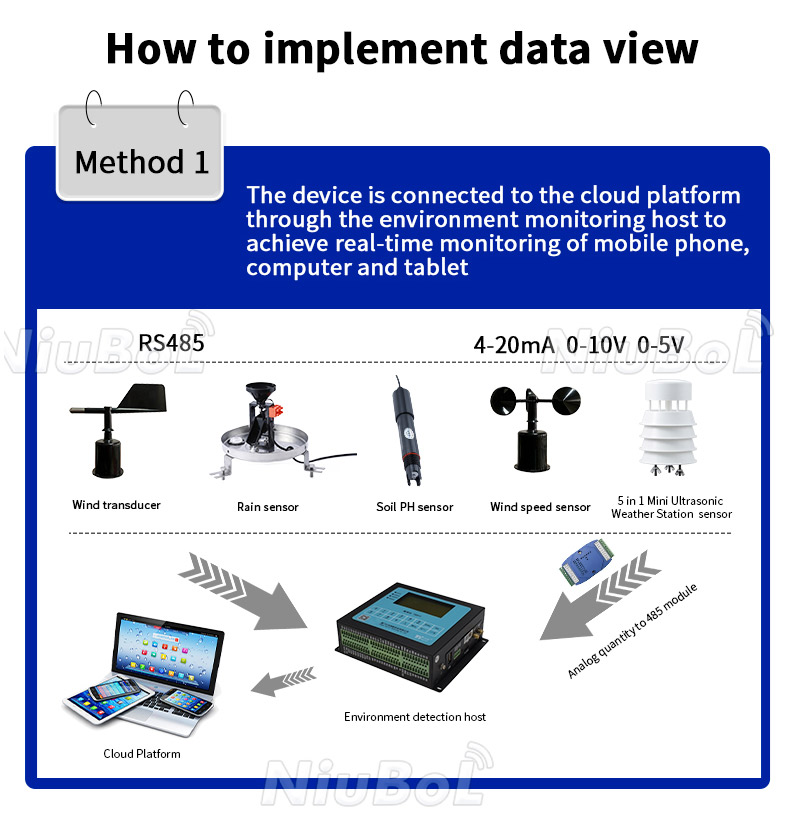
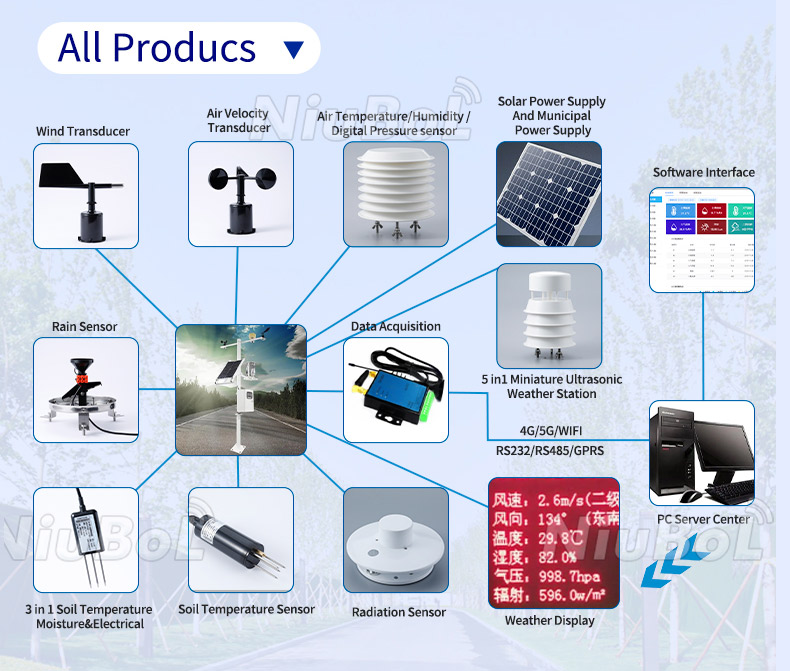
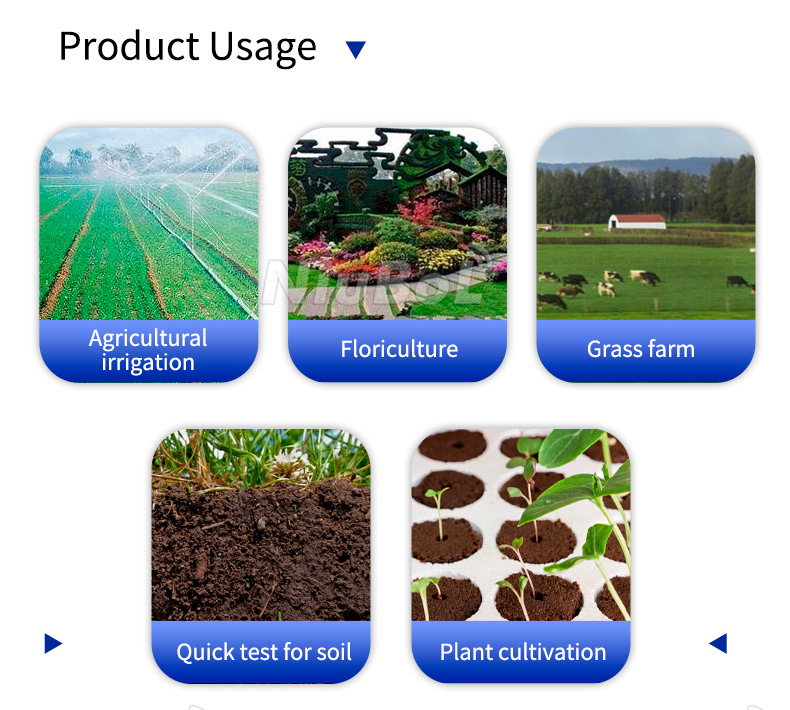
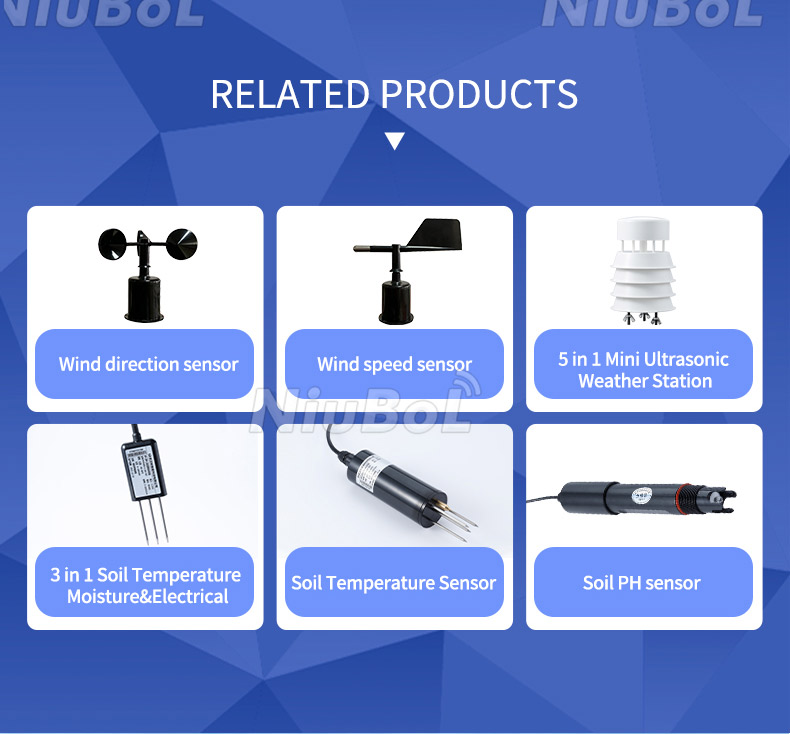
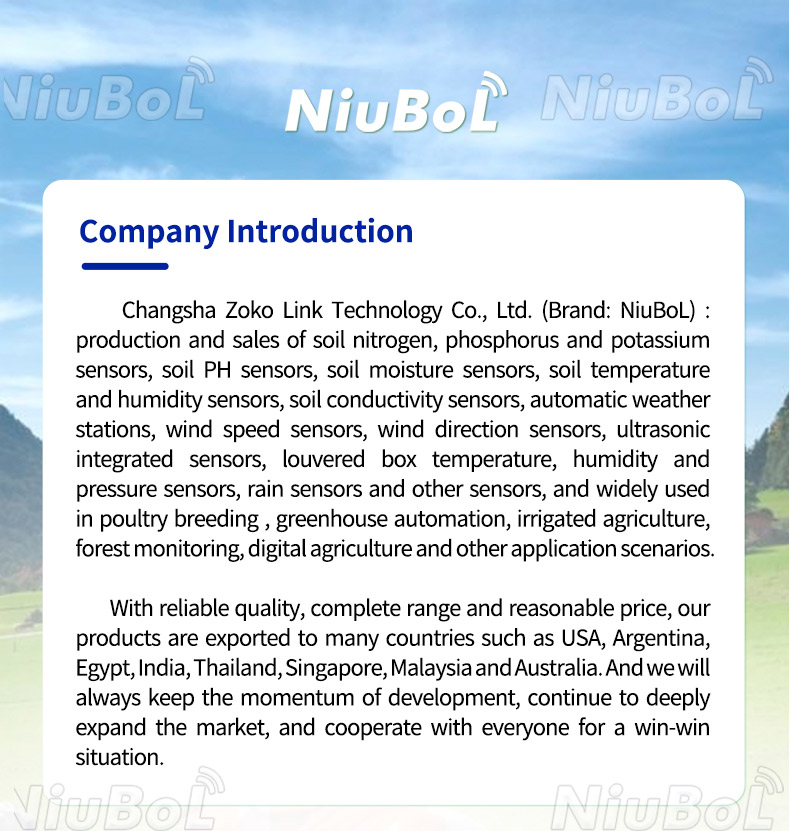

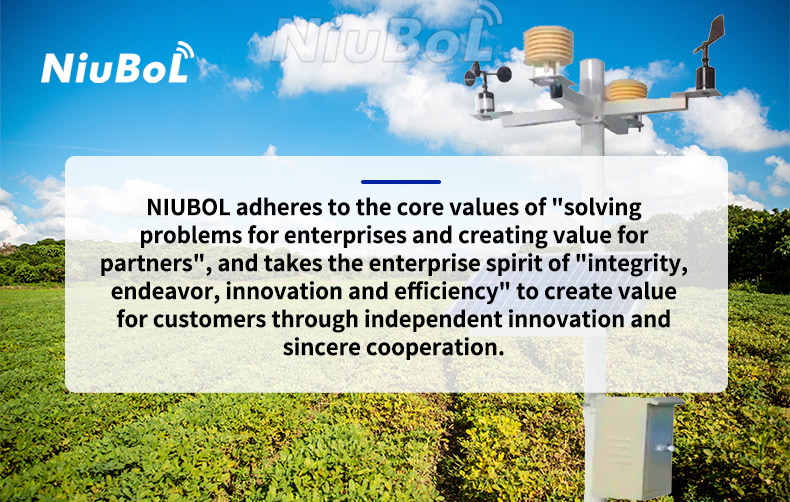
Soil pH sensor is a device used to measure soil acidity and alkalinity. It usually consists of two electrodes: a reference electrode and a working electrode. The reference electrode is usually a silver/silver chloride electrode, which provides a stable potential as a reference point. The working electrode is usually a glass electrode which is in contact with the soil and measures the pH of the soil. When the concentration of hydrogen ions in the soil changes, a chemical reaction occurs between the glass electrode and the soil, and this reaction causes a change in the potential on the surface of the glass electrode. The sensor determines the pH of the soil by measuring this change in potential. By using the soil pH sensor, people can keep abreast of the soil's acidity and alkalinity, so that they can take appropriate measures to regulate the soil's pH to meet the needs of different plants.
The working principle of soil pH sensor is based on electrochemical measurement technology, which mainly involves glass electrode and ion selective electrode.
Glass electrode: The key component in a soil pH sensor is the glass electrode. The glass electrode usually consists of a glass membrane sphere and an internal reference electrode. The glass membrane sphere is made of a special glass material which contains a special glass solution. This glass solution has the ability to react with hydrogen ions (H+) in the soil.
Ion Selective Electrodes: In addition to glass electrodes, soil pH sensors may also contain ion selective electrodes. An ion-selective electrode is an electrode that is designed to measure the concentration of specific ions. In soil pH sensors, ion-selective electrodes are primarily used to measure the concentration of hydrogen ions in the soil.
When the soil pH sensor is inserted into the soil, the glass electrode comes into contact with the soil and the glass solution inside the glass membrane sphere reacts with the hydrogen ions in the soil. This reaction produces an electrical potential that is proportional to the hydrogen ion concentration in the soil. At the same time, the ion-selective electrode measures the hydrogen ion concentration in the soil and generates another potential. By measuring the difference between these two potentials, the soil pH sensor can determine the acidity or alkalinity, or pH, of the soil.
The circuitry inside the sensor converts the potential difference into a digital signal that displays or records the soil's pH via a connected display or data acquisition device. It is important to note that soil pH sensors need to be calibrated periodically in order to ensure accurate measurements. The calibration process will use a standard buffer (a liquid with a known pH value) for comparison to ensure the accuracy and precision of the sensor.
Soil ph sensor has a wide range of applications in many fields, the following are the main application scenarios and its role value:
Agricultural field: In agricultural production, soil pH has an important impact on the growth and development of crops. Different crops have different requirements for soil pH, so it is very important to know the soil pH in time. By using soil pH sensors, farmers or horticulture enthusiasts can keep abreast of the soil's acidity and alkalinity so that they can take appropriate measures to regulate the soil's pH to meet the needs of different plants. This helps to improve crop yield and quality while reducing the use of chemical fertilizers and pesticides.
Land improvement field: soil pH sensors can also be used in the field of land improvement. When soil pH is found to be unstable, changes in soil pH can be monitored, and appropriate measures can be taken to regulate the pH of the soil in order to improve the land environment and increase the output efficiency of the land.
Environmental monitoring field: soil pH sensor can also be used in the field of environmental monitoring. In some environmental pollution events, the pH of the soil may change. Through the use of soil pH sensors, changes in soil acidity and alkalinity can be monitored in a timely manner, thus helping people to understand the environmental conditions and take appropriate measures.
Installation requirements and precautions for soil pH sensor are as follows:
Choose the right soil pH sensor: Select the right soil pH sensor according to the application scenario and measurement requirements. Ensure that the parameters of the sensor such as range, accuracy and service life meet the requirements.
Prepare tools and materials: Before installation, you need to prepare some tools and materials, including drilling tools, cleaners, gauze, plastic tubes, isolation rings and so on.
Determine the installation location: Choose a flat, dry, weed- and rock-free soil surface as the installation location. Make sure the sensor can fully contact the soil while avoiding contact with hard objects that may damage the sensor.
Install the sensor: Insert the sensor into the soil until it reaches the proper depth. Ensure that the sensor is in full contact with the soil, but avoid applying too much force to avoid damaging the sensor.
Connect the power supply and data output interface: Connect the power supply and data output interface of the sensor to ensure a stable and reliable connection. At the same time, the data output cable needs to be connected to a computer or data collector for real-time monitoring of soil pH.
Regular calibration and maintenance: In order to ensure accurate measurement results, the soil pH sensor needs to be calibrated and maintained regularly. The calibration process requires the use of standard buffers for comparison to ensure the accuracy and precision of the sensor. Meanwhile, the sensor surface should be cleaned and electrodes replaced regularly to ensure the service life and stability of the sensor.
Attention to safety: In the process of installation and use, you need to pay attention to safety matters. Avoid touching the electrode part of the sensor to avoid electric shock accident. At the same time, in the process of handling and storage, avoid violent vibration and collision to avoid damage to the sensor.
Proper installation and use of the soil pH sensor in accordance with the above requirements and precautions can ensure that it works properly and obtains accurate measurement results.
In conclusion, soil pH sensor has a wide range of application value in agriculture, land improvement, environmental monitoring and other fields, which can help people better understand the soil condition and take corresponding measures to improve crop yield and quality, while reducing the use of chemical fertilizers and pesticides to protect the environment. This is of great significance in the fields of agriculture, land improvement and environmental monitoring.
Prev:Soil Moisture Sensor
Next:Precipitation sensor
Sensors & Weather Stations Catalog
Agriculture Sensors and Weather Stations Catalog-NiuBoL.pdf
Weather Stations Catalog-NiuBoL.pdf
Related recommendations
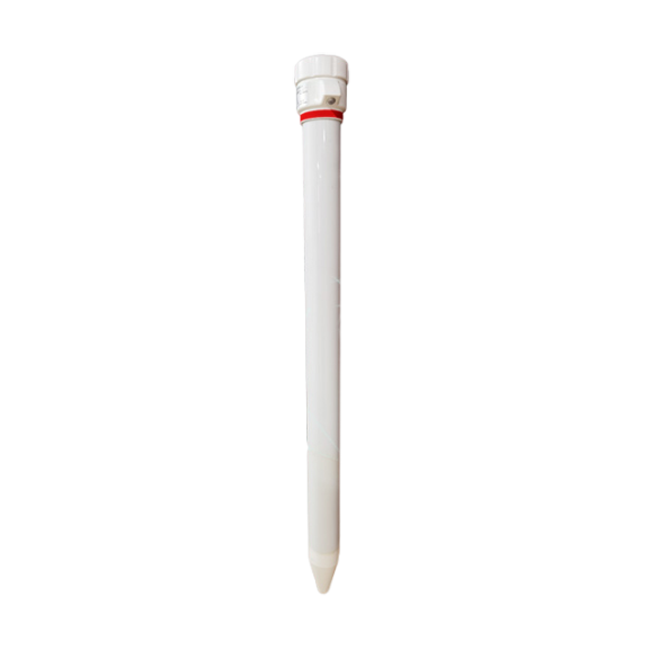 Multi-Depth Soil Sensor RS485
Multi-Depth Soil Sensor RS485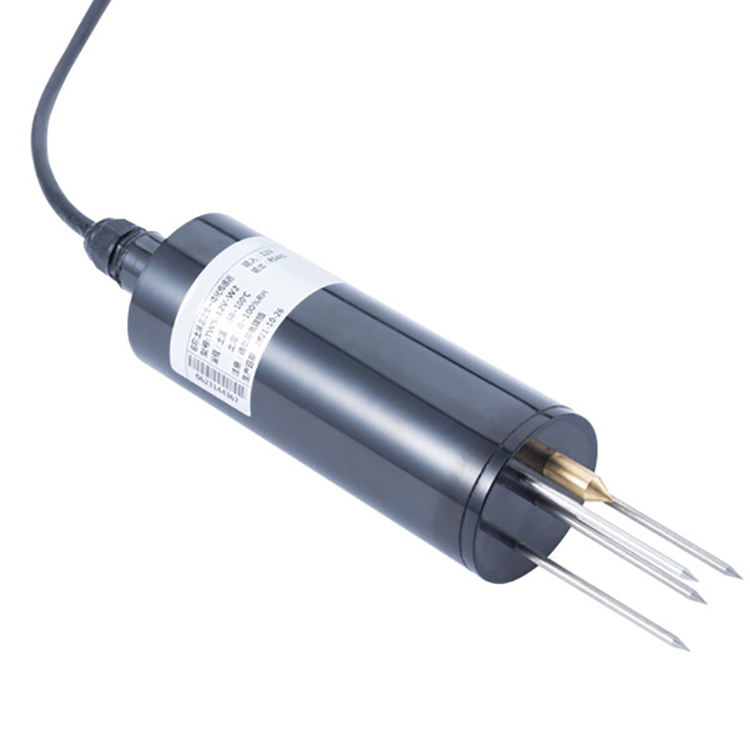 TDR Soil Moisture Sensor
TDR Soil Moisture Sensor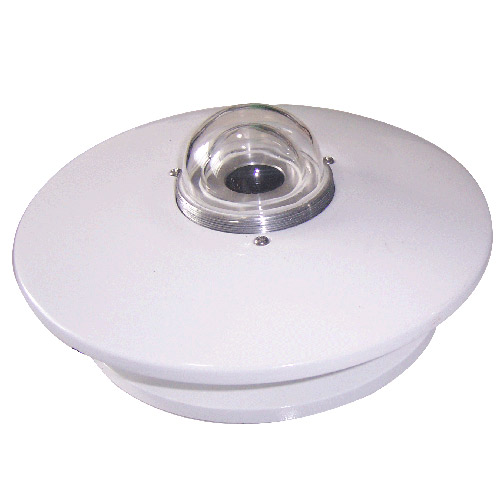 Pyranometer Solar Radiation Sensors
Pyranometer Solar Radiation Sensors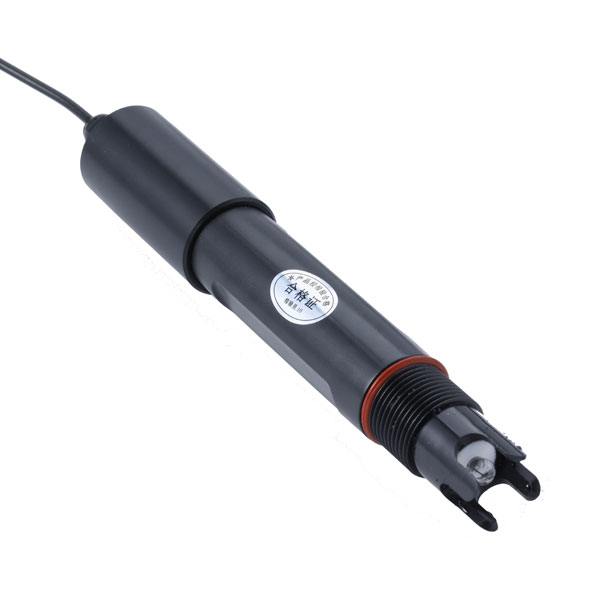 Soil ph sensor
Soil ph sensor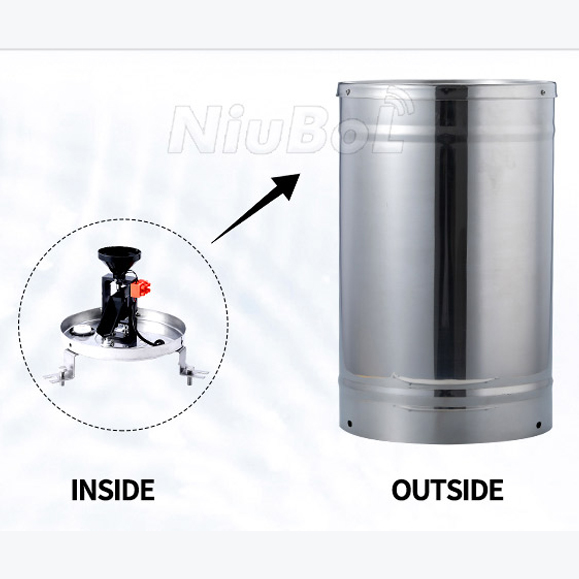 Tipping Bucket Rain Gauge
Tipping Bucket Rain Gauge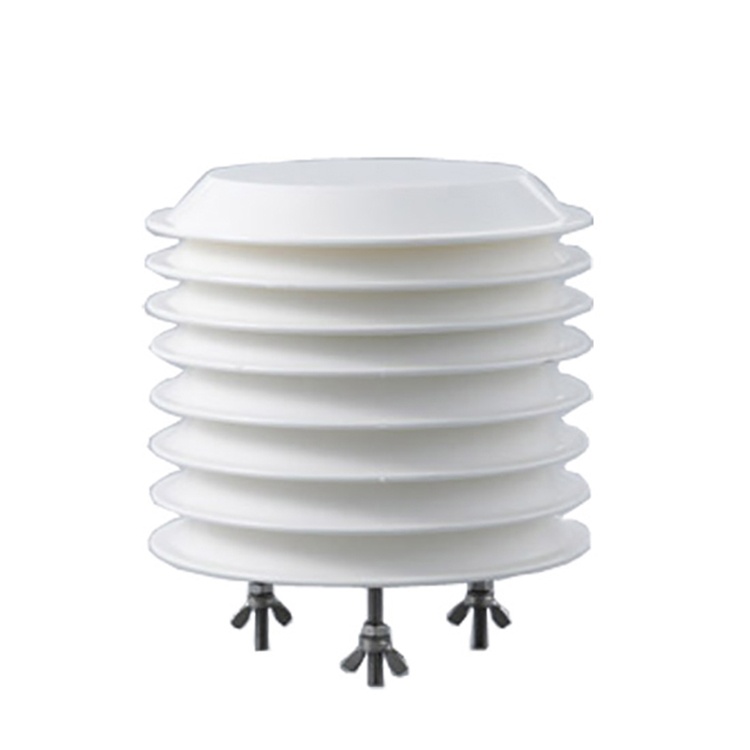 Air Temperature and Humidity Sensor
Air Temperature and Humidity Sensor
Screenshot, WhatsApp to identify the QR code
WhatsApp number:+8615367865107
(Click on WhatsApp to copy and add friends)
